Related Research Articles
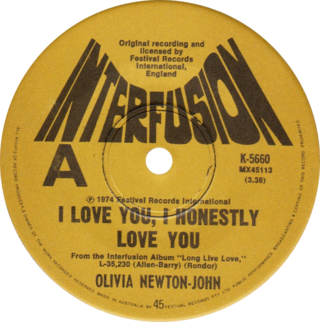
"I Honestly Love You" is a song recorded by Olivia Newton-John and released in 1974 on the album Long Live Love in the United Kingdom and If You Love Me, Let Me Know in the United States. The song became a worldwide pop hit, her first number-one single in the United States and Canada. The single was first released in Australia as "I Love You, I Honestly Love You", as per its chorus. The song was written by Jeff Barry and Australian singer and composer Peter Allen. The latter recorded it around the same time for his album Continental American.

"Sundown" is a song by Canadian folk artist Gordon Lightfoot, from the titular album, released as a single in March 1974.

"All I Ever Need Is You" is a popular song written by Jimmy Holiday and Eddie Reeves, and initially recorded by Ray Charles for his 1971 album, Volcanic Action of My Soul. The most well-known version of the song is the hit single by Sonny & Cher which, in 1971, reached No. 7 on the U.S. Billboard Hot 100, and was their single of greatest chart longevity, spending 15 weeks on that chart. Their album by the same title sold over 500,000 copies reaching RIAA gold status.

"I'll Never Fall in Love Again" is a popular song by composer Burt Bacharach and lyricist Hal David that was written for the 1968 musical Promises, Promises. Several recordings of the song were released in 1969; the most popular versions were by Dionne Warwick, who took it to number 6 on Billboard magazine's Hot 100 and spent three weeks topping the magazine's list of the most popular Easy Listening songs, and Bobbie Gentry, who topped the UK chart with her recording and also peaked at number 1 in Australia and Ireland, number 3 in South Africa and number 5 in Norway.
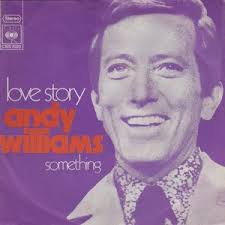
"(Where Do I Begin?) Love Story" is a popular song published in 1970, with music by Francis Lai and lyrics by Carl Sigman. The song was first introduced as an instrumental theme in the 1970 film Love Story after the film's distributor, Paramount Pictures, rejected the first set of lyrics that were written. Andy Williams eventually recorded the new lyrics and took the song to number nine on Billboard magazine's Hot 100 and number one on their Easy Listening chart.

"Tell Me a Lie" is a song composed by Mickey Buckins and Barbara Wyrick. Originally recorded by Lynn Anderson for her 1974 What a Man My Man Is album, it was released later that same year as a single by Sami Jo Cole, who took it to number 21 on both of the major U.S. pop charts. It also charted in Canada (#17). Cole's version was also an Adult Contemporary hit, reaching number 14 in the U.S. and number 27 in Canada.

"My Melody of Love" is the title of a popular song from 1974 by the American singer Bobby Vinton. Vinton adapted his song from a German schlager song composed by Henry Mayer, and it appears on Vinton's album Melodies of Love. The song was also recorded by Spanish pop singer Karina as "Palabras de Cristal".
"My Boy" is a popular song from the early 1970s. The music was composed by Jean-Pierre Bourtayre and Claude François, and the lyrics were translated from the original version "Parce que je t'aime, mon enfant" into English by Phil Coulter and Bill Martin.

"A Very Special Love Song" is the title of a 1974 song by country music singer Charlie Rich. The song was written by Billy Sherrill and Norro Wilson, songwriters who had also written Rich's 1973 hit, "The Most Beautiful Girl". The song is included on Rich's 1974 album, Very Special Love Songs.
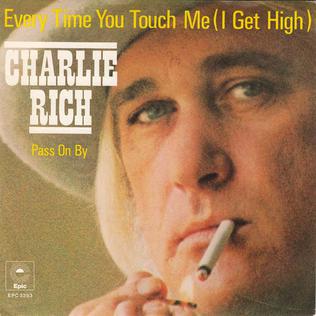
"Every Time You Touch Me (I Get High)" is the title track from the 1975 album by Charlie Rich. The song was written by Rich and Billy Sherrill and peaked at number three on the country chart. "Every Time You Touch Me (I Get High)" also peaked at number nineteen on the Billboard Hot 100 (Rich's final top 40 hit) and fared better on the Easy Listening chart where it spent one week at number one.

"Something Better to Do" is a song written by John Farrar and recorded by Olivia Newton-John. The song was released in September 1975 as the lead single from Newton-John's sixth studio album, Clearly Love. The narrator of the song muses that she's having a hard time adjusting to life without her departed lover; even the birds are wasting their songs singing to her, and until her beloved returns, "the birds will have to find something better to do."

The Way We Were is the thirty-second studio album by American pop singer Andy Williams, released in the spring of 1974 by Columbia Records and was a return to singing songs that his audience was already familiar with after Solitaire, his previous LP that was less reliant on covers of recent pop hits, did not perform well.

You Lay So Easy on My Mind is the thirty-fourth studio album by American pop singer Andy Williams, released in November 1974 by Columbia Records. The idea for this LP was mentioned in an interview with Williams in the November 3, 1973, issue of Billboard magazine that emphasized his desire to move away from recording albums of Easy Listening covers of hits by other artists, noting that he was "planning an album to be cut in Nashville with Columbia's high-flying country-pop producer, Billy Sherrill." The article coincided with the release of his first attempt to shift directions, Solitaire, which performed poorly. A return to the Easy Listening hits formula, The Way We Were, followed in the spring of 1974 but failed to even chart, so this next attempt to eschew soft rock songs leaned heavily on Country hits.

The singles discography of Elvis Presley began in 1954 with the release of his first commercial single, "That's All Right". Following his regional success with Sun Records, Presley was signed to RCA Victor on November 20, 1955. Presley's first single with RCA, "Heartbreak Hotel", was a worldwide hit, reaching the No. 1 position in four countries and the top 10 in many other countries. Other hit singles from the 1950s include "I Want You, I Need You, I Love You", "Don't Be Cruel", "Hound Dog", "Love Me Tender", "Too Much", "All Shook Up", "(Let Me Be Your) Teddy Bear", "Jailhouse Rock", "Don't", "Wear My Ring Around Your Neck", "Hard Headed Woman", "One Night", "(Now & Then There's) A Fool Such as I", and "A Big Hunk o' Love". On March 24, 1958, Presley entered the United States Army at Memphis, Tennessee, and was stationed in Germany. He left active duty on March 5, 1960.

You've Got a Friend is an album by American pop singer Johnny Mathis that was released on August 11, 1971, by Columbia Records. The phrase "Today's Great Hits" can be found above the title on both sides of the record jacket as well as both sides of the LP label as if to emphasize that this is essentially an album covering songs that were recently on the charts. This was a common practice of many vocalists of the period, so much so in fact that fellow Columbia artist Andy Williams also released an album titled You've Got a Friend in August 1971 on which he coincidentally covers seven of the 11 tracks that Mathis recorded for this album.
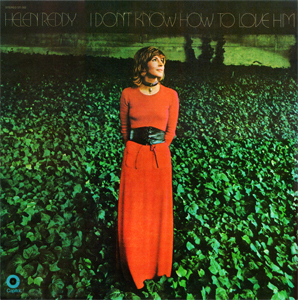
I Don't Know How to Love Him is the debut studio album by Australian-American pop singer Helen Reddy, released on May 10, 1971, by Capitol Records. I Don't Know How to Love Him included her first recording of "I Am Woman". The album made its first appearance on Billboard magazine's Top LP's chart in the issue dated June 5, 1971, and remained there for 37 weeks, peaking at number 100, and got as high as number 40 on the album chart in Canada's RPM magazine. On November 27, 1974, the album received Gold certification from the Recording Industry Association of America, and on March 29, 2005, it was released for the first time on compact disc as one of two albums on one CD, the other album being Reddy's eponymous follow-up that originally came out in the fall of 1971.
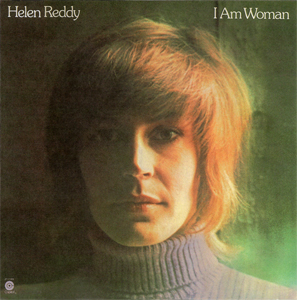
I Am Woman is the third studio album by Australian–American pop singer Helen Reddy, released on 13 November 1972, by Capitol Records. The album included her second recording of the song that gave the album its name, which was also the version that spent a week at number one on the Billboard Hot 100.
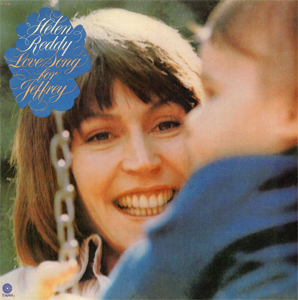
Love Song for Jeffrey is the fifth studio album by Australian-American pop singer Helen Reddy, released on March 25, 1974, by Capitol Records. The album focused on her family, giving special attention to those who had died within the past year. A tribute on the back cover reads: "In memory of my mother, Stella Lamond Reddy, July 1973, my father, Max Reddy, September 1973, and my beloved aunt, Helen Reddy Sr., January 1974."
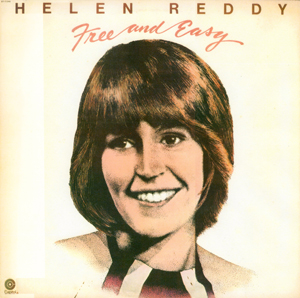
Free and Easy is the sixth studio album by Australian-American pop singer Helen Reddy that was released in the fall of 1974 by Capitol Records. The album included rare forays into rock and vaudeville ("Showbiz"). The album debuted on Billboard's Top LP's & Tapes chart in the issue dated November 2, 1974, and reached number eight during its 28 weeks there. The following month, on December 18, the Recording Industry Association of America awarded the album with Gold certification for sales of 500,000 copies in the United States. In the UK it peaked at number 17, and in Canada's RPM magazine it got as high as number nine on its list of the top LPs in the issue dated January 11, 1975. On January 27, 2004, it was released for the first time on compact disc as one of two albums on one CD, the other album being her other 1974 release, Love Song for Jeffrey.
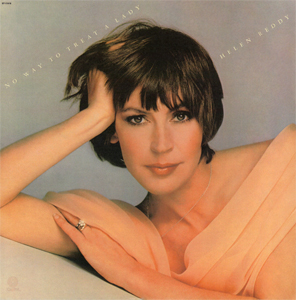
No Way to Treat a Lady is the seventh studio album by Australian-American pop singer Helen Reddy that was released in the summer of 1975 by Capitol Records and found Reddy tackling country pop, bossa nova and blues. The album debuted on Billboard's Top LP's & Tapes chart in the issue dated July 12, 1975, and peaked at number 11 over the course of 34 weeks, and on the album chart in Canada's RPM magazine it got as high as number 13. On January 19, 1976, the Recording Industry Association of America awarded the album with Gold certification for sales of 500,000 copies in the United States, and on August 23, 2005, it was released for the first time on compact disc as one of two albums on one CD, the other album being her 1976 release, Music, Music.
References
- ↑ Kosser, Michael (2006). How Nashville Became Music City, U.S.A.: A History Of Music Row. Lanham, Maryland, US: Backbeat Books. pp. 155–160. ISBN 978-1-49306-512-7.
- ↑ Whitburn, Joel (2004). The Billboard Book Of Top 40 Country Hits: 1944-2006, Second edition. Record Research. p. 289.
- ↑ Whitburn, Joel (2002). Top Adult Contemporary: 1961-2001. Record Research. p. 203.
- ↑ Kent, David (1993). Australian Chart Book 1970–1992 (illustrated ed.). St Ives, N.S.W.: Australian Chart Book. p. 251. ISBN 0-646-11917-6.